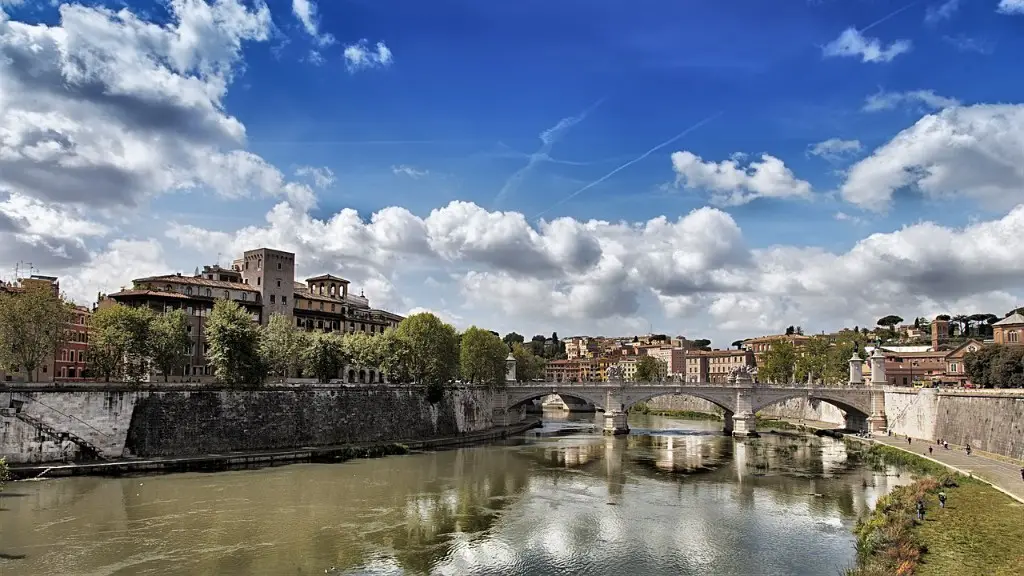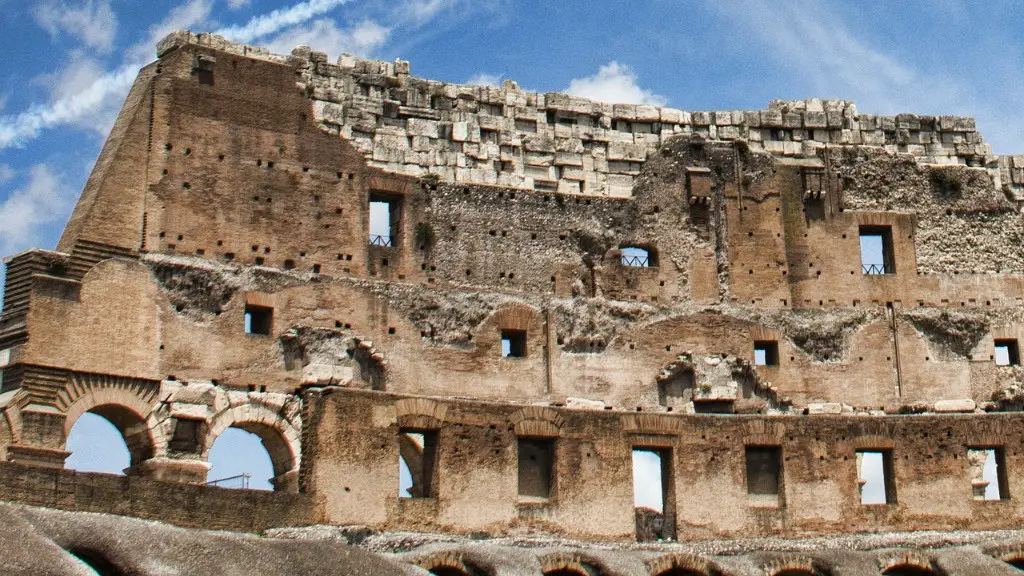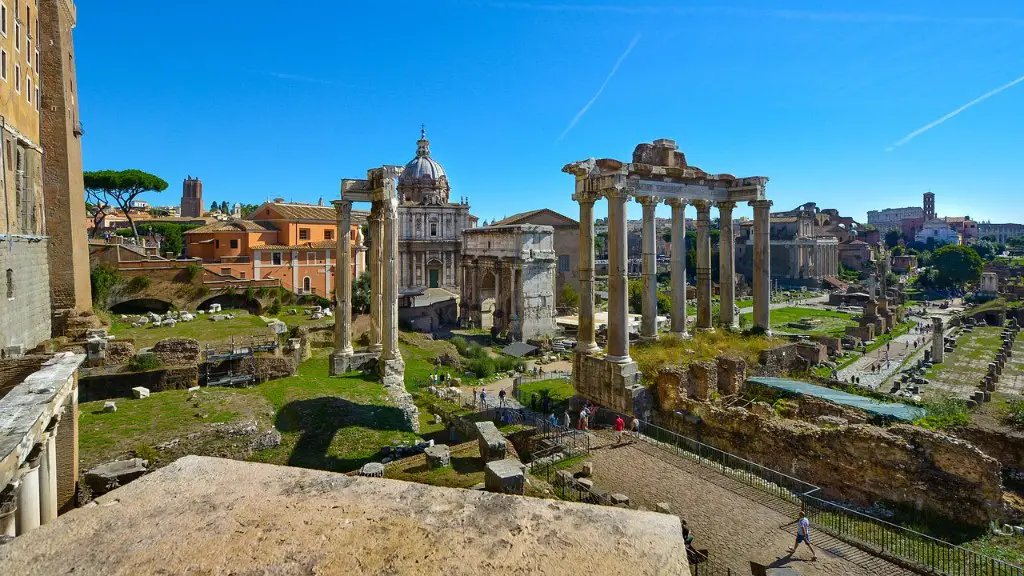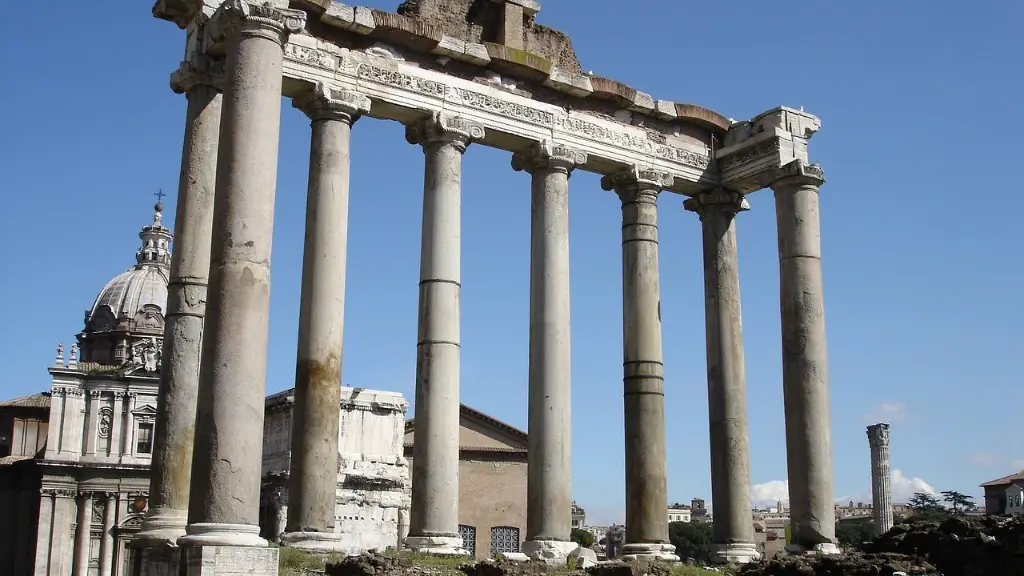The ancient Roman civilization developed a renowned legal system that is considered today as a predecessor to today’s legal systems around the world. This article looks at how laws were made in the ancient Roman Republic and how the legal system was structured around the lawmaking system. In ancient Rome, a mosaic of laws were created that encapsulated many different laws from different parts of the world. This mix of laws from the East and West, plus Roman laws, functioned to form a complex and sophisticated legal system that lasted until the 5th century CE.
There were two main branches of Roman Law: the Twelve Tables of Roman Law, which were the backbone of Roman civil law, and the “Leges”, which were the foundation of Roman criminal law. The Roman Twelve Tables, or Duodecim Tabulae, were the first Roman Law code which were written down in the 5th century BCE. They defined the civil, religious and criminal laws of Rome, and laid the foundation for many of the subsequent laws. They also laid down the concepts of legal contracts and property ownership, as well as the laws governing contracts, wills, and marriage.
The legal system’s structure was based on the concept of the lawmaking assembly, or ‘comitia’. This comprised of two assemblies, the ‘curiate assembly’ and the ‘centuriate assembly’. The curiate assembly’s power was restricted and was mainly concerned with religious matters, while the centuriate assembly was more influential and had the power to pass laws. In 166 BC, the Lex Hortensia was enacted by the centuriate assembly. It was a law that decreed that the decisions of the centuriate assembly were to be binding on all citizens, regardless of personal wealth or position. It was a major moment in Roman law and marks the start of the Roman Republic.
The major lawmaking body in the Roman Republic was the Senate. The Senate was predominately run by the patrician class and was responsible for deliberation and advice on laws. The Senate’s opinion on a law was used to sway the decisions of the centuriate assembly. For example, a law proposed by the Senate was presented to the centuriate assembly where its merits were debated by the members and voted on. The law pass or failed depending on the votes. It was a long and involved process that was made easier when the Lex Hortensia was enacted.
In the Roman Republic, the Senate had the power to propose and pass laws, while the centuriate assembly had the power to approve or reject the proposed laws. This complex legal system continued under the Roman Empire where the emperor had the power to enact edicts that had similar legal authority to law. Ultimately, the lawmaking process in the Roman Republic and Empire was an elaborate system of checks and balances. It was a complex process that relied on the elected leaders and the citizens who took part in the process of creating laws.
Lawmaking Through Representatives
The Roman Citizens elected representatives to make and pass laws. Each representative was chosen for their wisdom, character, and absolute respect for the law. The elected representatives were expected to make clear and sensible laws that would benefit all citizens. The representatives elected came from different backgrounds, ranging from ex-consuls, ex- praetors, and ex-tribunes. These people were also eligible for the Senate.
Once a law was passed by the Senate and approved by the centuriate assembly, it was handed over to the legislative representatives for the finalization and enactment of the law. In cases where the representatives disagreed on a particular law, the Senate had the authority to override the disagreement. In most cases, the representatives agreed with the Senate’s decision and when the law was ratified, it was transcribed into the official Roman law code.
Roman law also had a unique clause that allowed ordinary citizens to propose new laws through one of their representatives. This was known as the “Intercessor”. In essence, a law proposed by a citizen would have to be approved by their representative no matter what it was, even if it was in violation of Roman law. This unique aspect of Roman law gives an insight into how invested citizens were in the process of lawmaking.
Roman Law Today
Roman laws and the complex legal system that underpinned its success are still present today in many parts of the world. In Europe, for example, the ancient Roman Law influenced the development of law that governs the lives of citizens. This legacy can also be seen in parts of North Africa and the Middle East, where the ancient Roman legal system has had a profound influence on modern legal systems. Roman laws still stand as a widely recognised legal system and its influence is still felt in many countries of the world today.
Roman law was particularly influential in the development of international law, which is the law that governs the behaviour of nations. Roman law encompasses a number of key principles such as the supremacy of law, natural law and equitable justice. These principles have been used in many international treaties that have been drafted and implemented over the past few centuries. This demonstrates how important the Roman legal system was, and still is, in influencing how laws are made on a global scale.
Conclusion of Roman Legal System
The legal system in ancient Rome was complex and comprehensive. It had its origins in the Roman Republic and its development in the Roman Empire. It was a sophisticated legal system that functioned through the collaboration of various representatives, the Senate, and the centuriate assembly. This system has had a lasting impact in the legal systems of today, with influences found in countries around the world. Through this system, Rome gave the world a legacy of law that is still respected and honored today.
Impact Today
The legacy of Rome is still very much alive and influential in the modern world. Contributions of Roman law can be seen in many areas of modern life, from the development of international law to the legal system used in countries around the world. Roman law has also been used to influence the framing of laws in the United States, with many Roman concepts intertwined with American legal doctrine. Roman law is a testament to the creativity and ingenuity of the ancient Roman civilization.
The legacy of Roman law will continue to be evident in the legal systems of today. Its influence is constantly seen in the decisions of courts, in legislative debates and in judicial opinions. In a world where the law is constantly changing, it is important to remember the legacy of Roman law and the important contributions it has made to the development of the legal systems of today.
Legislative and Executive Power in Ancient Rome
The legislative power in the Roman Republic and Empire was divided between the Senate and the elected representatives. The Senate was the most powerful body, as it was populated by members of the patrician class and held the authority to pass laws that would bind all Roman citizens. The executive power was vested in the elected representatives and in individual magistrates who had the power to enforce laws and ensure compliance. This division of power set the cornerstone of Roman law, which continues to be influential in many countries today.
In addition, the division of authority in Roman law was a major contribution to the development of constitutional law. Rome, through its intricate legal system, developed the concept of separation of powers between legislature, executive, and judiciary. This doctrine developed in Roman law has been adopted by many countries across the world and continues to influence constitutional law to this day.
Roman law was both sophisticated and complex and contributed significantly to the development of the legal systems of today. The Roman legal system had its origin in the Twelve Tables of Roman Law and was later developed with the enactment of the Lex Hortensia. It was an intricate system of checks and balances with the Senate and the centuriate assembly exercising their respective powers. Roman law is still very much relevant today, and its influence is seen in many countries, illustrating the lasting impact that the ancient Romans had on the development of law.
Contributions to International Law
The legacy of Roman law is not only seen in the legal systems of today’s world, but it has also had a major contribution to the development of international law. Roman law contains some of the most important principles of international law, such as the principle of pacta sunt servanda and the rule of law. Furthermore, Roman law was a major influence in the development of the concept of individuals having rights under international law. This influence is still evident in international law today.
Roman law also played an important role in the development of international organisations such as the United Nations, the World Trade Organisation and the International Criminal Court. Many of the doctrines and principles that govern these organisations can be traced back to the influence of Roman law. This shows the far-reaching influence of the ancient Roman legal system and its lasting impact on the development of global governance.
Roman law has had a profound influence in the development of international law and its principles are still seen in many international treaties and organisations. It represents a legacy of law that is still very much alive in many countries and has been a major contributor to the development of legal systems around the world.
Conclusion
Roman law has had a lasting impact on the legal systems of today. The legal system of the Roman Republic and Empire was complex and sophisticated, encompassing various authorities and representatives. This system influenced legal developments across the world, from Europe to the remotes parts of North Africa. Rome’s influence can still be seen in many countries, showing the lasting impact of their legal system. Roman law was a major influence in the development of international law and its principles remain prominent in many global organisations. The legacy of Roman law will always be relevant and respected in the modern world.





